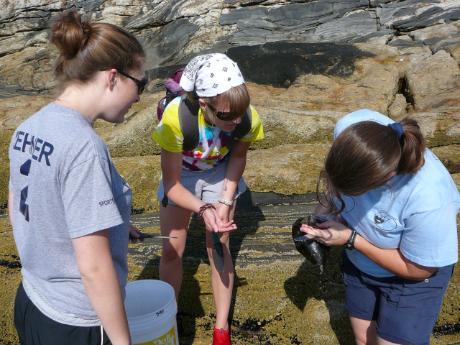The mission of the Biology Department is to offer a comprehensive program designed to provide students with an opportunity to study the diversity of life and the mechanisms governing life processes in a manner that is integrated with the broader goals of a liberal arts education.

We value the breadth and integration of Biology across the full spectrum of our discipline and related fields of inquiry. At all levels of our curriculum we engage students in the creative and investigative process of science as they develop critical and analytical skills. We contribute to the growth of scientific knowledge through faculty research and professional presentation and publication, and are involved in local and international outreach and community service initiatives.
Our interactive community of learning fosters collaboration between faculty and students in these research and outreach activities. By participating in our community, students become informed citizens and are prepared for careers as scientists and a variety of other professions.
Biology Department Diversity, Equity, and Inclusion Statement
The Biology Department is committed to diversity, equity, and inclusion (DEI) within the Muhlenberg College community. Aligned with its philosophy and major goals, the Biology Department seeks to "engage students in the creative and investigative process of science as they develop critical and analytical skills". To ensure that students from all academic and socio-cultural backgrounds have an equal opportunity to grow and thrive in our biology curriculum, we are committed to elucidating current barriers to success. The Biology Department is dedicated to incorporating anti-racist pedagogies into all levels of its curriculum. In addition, the department will continue to work towards dismantling the traditional power structure and dynamics in biology education by introducing multiple and diverse perspectives into the classroom. Finally, we aim to graduate individuals who can articulate identity, privilege, and structural injustices play a role in discovering and disseminating biological knowledge.
